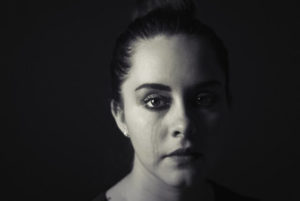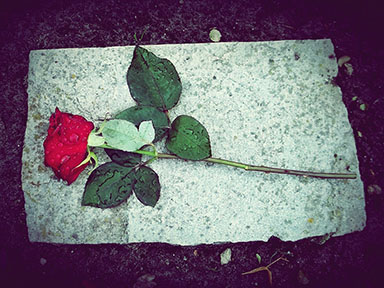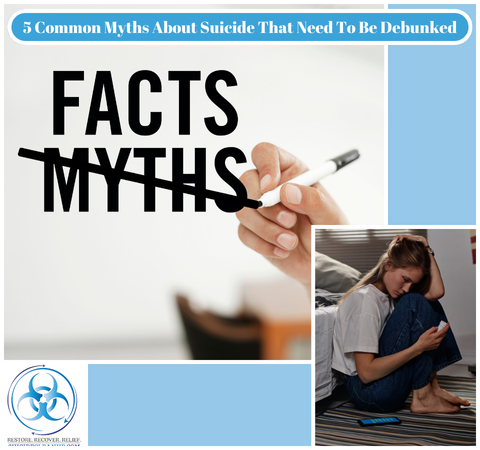
Heaven’s Gate: The Mass Suicide That Shocked the Nation
October 19, 2022
Dreading Valentine’s Day? You’re Not Alone
February 14, 2023Suicide affects friends and family deeply. In fact, it is considered one of the most traumatic, life-changing events. Family and friends are left to face the deep emotions of loss, confusion, and guilt. The feelings of shock, anger, sadness, grief, and disbelief can be overwhelming.
Grief is no simple process, and everyone experiences it differently. The effects of suicide on a family can result in permanent changes as they try to understand, adjust, and cope with the loss. Some individuals struggle to find the right resources and support for the rest of their life. And a 2015 study implied that adolescents are two times more likely to die by suicide within a year after their friend does. This is thought to be due to a phenomenon known as suicide contagion.
Stories from Friends and Family
To better understand how suicide affects the family, below are some personal stories of people who have lost close friends or family members to suicide.
My friend’s suicide was a tragedy that shook me to my core. I had known her since elementary school and we had been close for a long time. When I received the news of her passing, I felt like a part of me had died too. I was overwhelmed with grief and sadness that she was gone. I felt like a part of my heart had been ripped out, and I would never be the same. The funeral was difficult for me to get through. I wanted to cry, but I could not bring myself to do it. I felt guilty at her funeral for not being able to cry when everyone else around me was. I was numb and empty, and I wanted to be alone, but I knew her family members were grateful for my support.
In the days and weeks that followed, I struggled to come to terms with her death. I had a hard time understanding why she had taken her life. I was angry at her for making such a rash decision and leaving us all behind. I had so many questions and no answers. I went through a period of depression and had a hard time connecting with people. I felt like I was walking through the world in a fog, unable to process her death.
Although it has been several years since her suicide, I still think about her often. I still miss her and I think about what could have been. Her death will always be a part of me, but I have learned to live with it and move on.
–Sophia Grace Walker, 28 (Raleigh, NC)
The loss of my uncle to suicide was a devastating blow to my family. We had no idea he was struggling with depression, and it was heartbreaking to know that he felt he had no other option but to take his own life.
The news of his death was like a punch in the gut, and I felt like I couldn’t breathe. It was like a nightmare I couldn’t wake up from, and it felt like the pain would never go away.
The days and weeks that followed were filled with tears and sadness. I struggled to cope with the pain and grief, and I felt like I was barely keeping it together. I felt so alone, and I was overwhelmed by the thought that he was gone forever.
Sophia’s story is like many others who have been affected by the loss of a friend or close family member to suicide. Clara Smith knows the pain all too well, especially from the passing of her uncle:
The loss of my uncle to suicide was an emotionally devastating experience that I will never forget. Even though it’s been years since his passing, the pain of his absence still lingers in my heart.
For my uncle’s brother (my father), the grief has completely subsided. My father, once 5 years sober, has relapsed several times since my uncle’s passing 2 years ago. He feels ashamed, but what can I do? He refuses to see a counselor for his grief–let alone acknowledge the pain it’s obviously causing him.
–Clara Alexandra Smith, 32 (Annapolis, MD)
The Smith family was devastated after their uncle’s tragic suicide. They were filled with sadness, guilt, and confusion. Although the tragedy occurred in 2018, some of their family members still struggle to cope with the loss.
In addition to the overwhelm caused by emotional pain, families are held responsible for cleaning up the tragedy on the property after a loss. Authorities transport the body away from the scene, but the home remains a dangerous biohazardous situation. Local police officers do not clean up the aftermath; instead, they refer or suggest that families find a biohazard cleanup company. Families hire us to clean and restore the property.
How We Can Help
We’re here during the worst time in an individual’s life. We say yes when others say no. We enter homes that most people cannot bear the thought of even visualizing. We are here to ease the burden through our nationwide suicide cleaning crews. With our help, families do not endure further trauma by taking the task into their own hands or having to face it alone.
While we hope families turn to the help of cleanup services like these if they’re facing similar circumstances, we also hope these stories show suicide is never the answer. It is a permanent solution to a temporary problem, it doesn’t solve the underlying issues and oftentimes causes more pain.
Suicide leaves behind a wake of grief, pain, and a lasting impact on surrounding lives. If you are considering suicide, please know there are better days and options available to you. Call the suicide hotline at 988, talk to a friend or family member, or seek professional help. Don’t make a decision that you cannot take back. You will find the strength to get through this.
For mental health, suicide help, or after death resources, please see:
- How to Find The Right Therapist
- Find A Therapist
- After Death Cleanup
- Resources for Mental Health and Suicide


